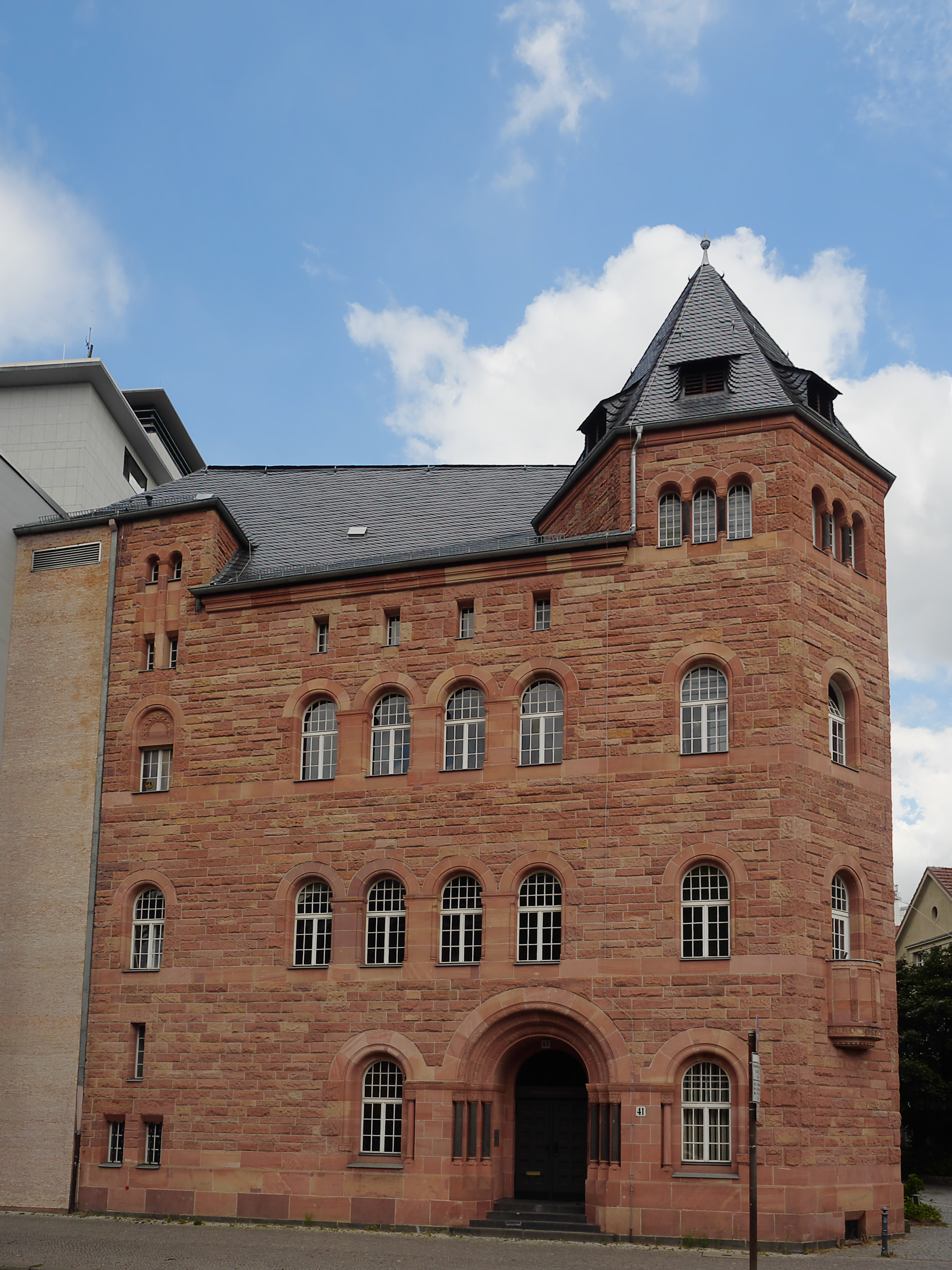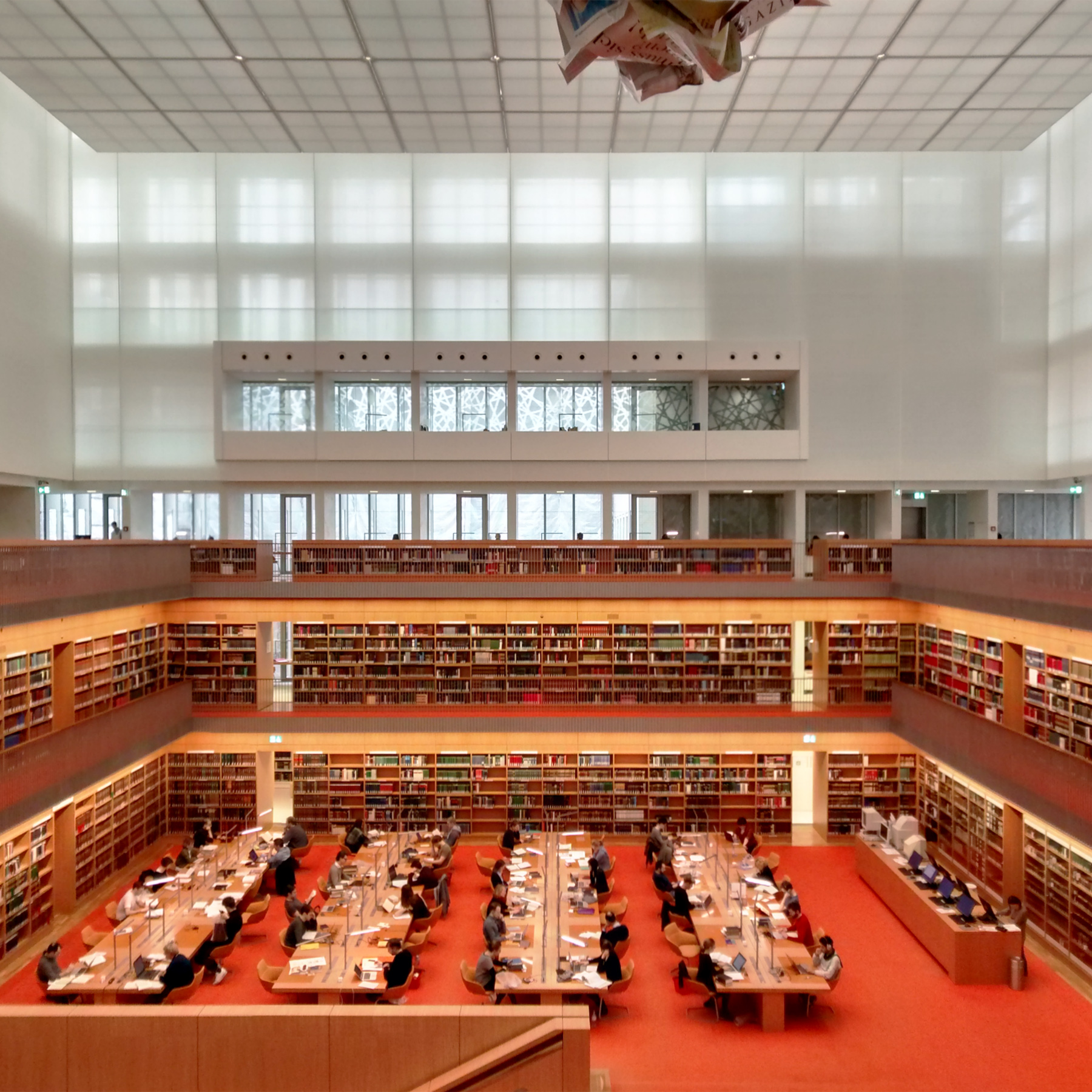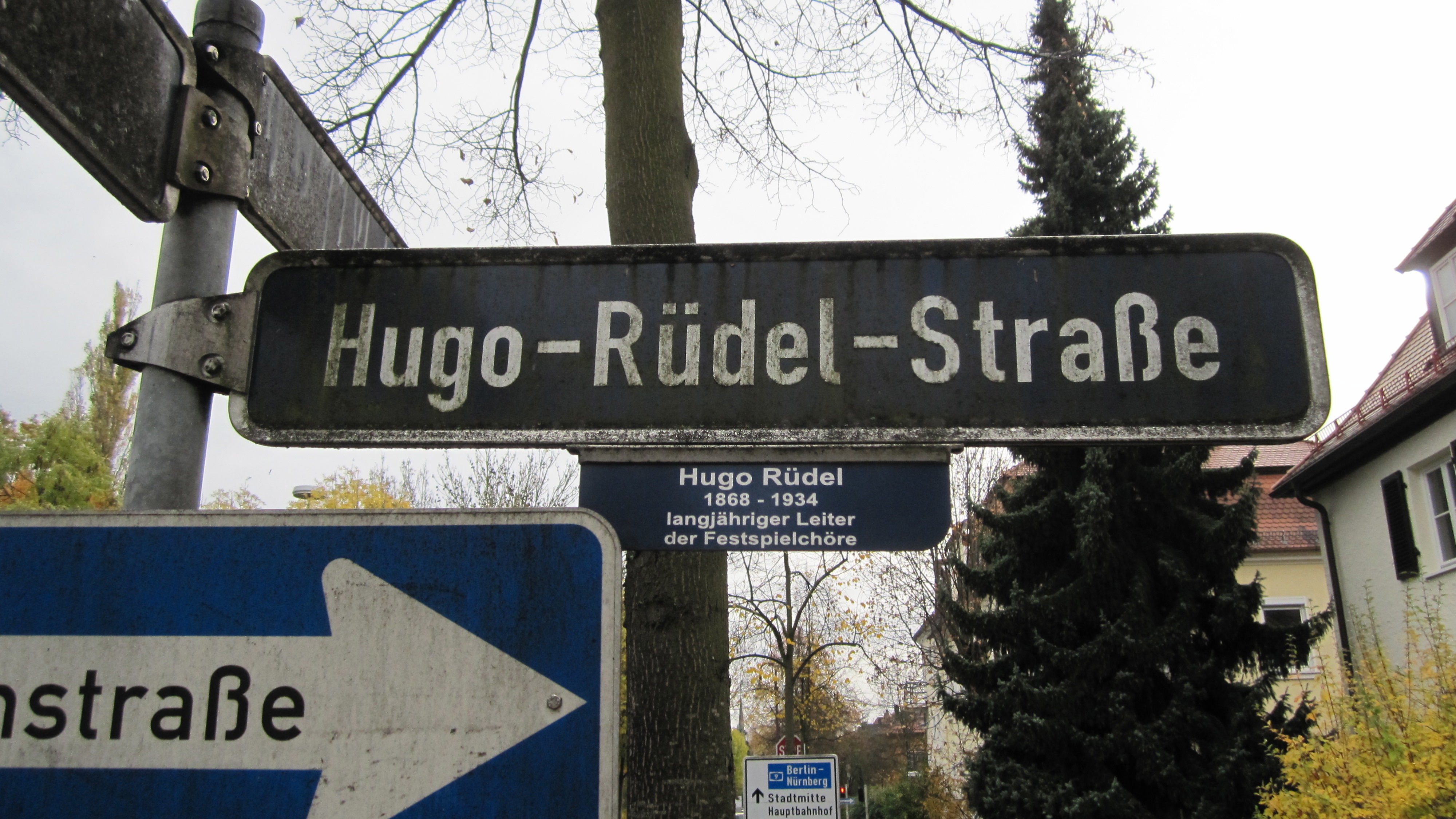|
Royal Music Institute Of Berlin
The Königliches Musik-Institut Berlin (Royal Music Institute of Berlin) was a training centre for musicians and a predecessor of today's Institute for Church Music at the Berlin University of the Arts. History The institute was founded in 1822 by Carl Friedrich Zelter and served to train organists, cantors and teachers at seminars and grammar schools. In the early years, the training usually only lasted one year, but could be extended to two years if necessary. The first teachers at the facility, which was popularly called the Organ Institute (''Orgel-Institut''), were August Wilhelm Bach (organ) and Bernhard Klein (vocals and instrumentation). Carl Gottlieb Reissiger followed in 1825, followed soon after by Eduard Grell. Directors after Zelter's death were: * August Wilhelm Bach, 1832–1869, * August Haupt, 1869–1891, * Robert Radecke, 1892–1907, * Hermann Kretzschmar, 1907–1922, * Carl Thiel, 1922–1927, * Hans Joachim Moser, 1927–1933. * Fritz Stein, 1933–19 ... [...More Info...] [...Related Items...] OR: [Wikipedia] [Google] [Baidu] |
Berlin University Of The Arts
The Universität der Künste Berlin (UdK; also known in English as the Berlin University of the Arts), situated in Berlin, Germany, is the largest art school in Europe. It is a public art and design school, and one of the four research universities in the city. The university is known for being one of the biggest and most diversified universities of the arts worldwide. It has four colleges specialising in fine arts, architecture, media and design, music and the performing arts with around 3,500 students. Thus the UdK is one of only three universities in Germany to unite the faculties of art and music in one institution. The teaching offered at the four colleges encompasses the full spectrum of the arts and related academic studies in more than 40 courses. Having the right to confer doctorates and post-doctoral qualifications, Berlin University of the Arts is also one of Germany's few art colleges with full university status. Outstanding professors and students at all its colleg ... [...More Info...] [...Related Items...] OR: [Wikipedia] [Google] [Baidu] |
Technical University Of Berlin
The Technical University of Berlin (official name both in English and german: link=no, Technische Universität Berlin, also known as TU Berlin and Berlin Institute of Technology) is a public research university located in Berlin, Germany. It was the first German university to adopt the name "Technische Universität" (Technical University). The university alumni and professor list includes several US National Academies members, two National Medal of Science laureates and ten Nobel Prize laureates. TU Berlin is a member of TU9, an incorporated society of the largest and most notable German institutes of technology and of the Top International Managers in Engineering network, which allows for student exchanges between leading engineering schools. It belongs to the Conference of European Schools for Advanced Engineering Education and Research. The TU Berlin is home of two innovation centers designated by the European Institute of Innovation and Technology. The university is labeled ... [...More Info...] [...Related Items...] OR: [Wikipedia] [Google] [Baidu] |
Music Schools In Germany
Music schools in Germany cater to pupils from an early age up to postgraduate students. They exist within and outside the formal education system. Musikschulen Public Music Schools are foundations for the musical education of children, adolescents and adults. They are usually in public ownership. They supplement rather than replacing music instruction in school. Public Music Schools can be found in most cities and towns. There were 914 public music schools in Germany as of January 1, 2009. Private Music Schools also exist, such as the "Musikschule Fröhlich" and the "Yamaha Schools of Music". Musikgymnasium A Music Gymnasium is a secondary school designed to prepare children for studies in music. They can be day or boarding schools. Full-time music education at a Musikgymnasium can begin as early as 10 years of age. The curriculum includes subjects such as Rhythm, Music Theory, Ear Training, Composition. Students normally study two musical instruments including piano. In some cases ... [...More Info...] [...Related Items...] OR: [Wikipedia] [Google] [Baidu] |
Berlin State Library
The Berlin State Library (german: Staatsbibliothek zu Berlin; officially abbreviated as ''SBB'', colloquially ''Stabi'') is a universal library in Berlin, Germany and a property of the Prussian Cultural Heritage Foundation. It is one of the largest libraries in Europe, and one of the most important academic research libraries in the German-speaking world. It collects texts, media and cultural works from all fields in all languages, from all time periods and all countries of the world, which are of interest for academic and research purposes. Some famous items in its collection include the oldest biblical illustrations in the fifth-century Quedlinburg Itala fragment, a Gutenberg Bible, the main autograph collection of Goethe, the world's largest collection of Johann Sebastian Bach's and Wolfgang Amadeus Mozart's manuscripts, and the original score of Ludwig van Beethoven's Symphony No. 9. Central functions and cooperation with other libraries The SBB is one of six libraries for ... [...More Info...] [...Related Items...] OR: [Wikipedia] [Google] [Baidu] |
Johann Nikolaus Forkel
Johann Nikolaus Forkel (22 February 1749 – 20 March 1818) was a German musicologist and music theory, music theorist, generally regarded as among the founders of modern musicology. His publications include ''Johann Sebastian Bach: His Life, Art, and Work'', the first substantial survey on the life and works of Johann Sebastian Bach. Biography He was born at Meeder in Coburg. He was the son of a cobbler, and received early musical training, especially in keyboard playing, from Johann Heinrich Schulthesius, who was the local Kantor. In other aspects of his music education he was self-taught, especially in regards to theory. As a teenager he served as a singer in Lüneburg, and studied law for two years at the University of Göttingen; he remained associated with the University for more than fifty years, where he held varied positions, including instructor of music theory, organist, keyboard teacher, and eventually director of all music at the university. In 1787 he received an ... [...More Info...] [...Related Items...] OR: [Wikipedia] [Google] [Baidu] |
Justus Hermann Wetzel
Justus Hermann Wetzel (11 March 1879 – 6 December 1973) was a German composer, writer and music educator. Life Wetzel was born in Kyritz, Brandenburg, the son of a postal clerk. After his Abitur, which he passed in Potsdam in 1897, he studied biology in Berlin, Marburg and Munich from 1897 to 1901. In Marburg he also studied philosophy with Hermann Cohen and Paul Natorp. In 1901 he received his doctorate there with a zoological thesis. He then turned to music and deepened his knowledge with private studies in Berlin. The Friedrich-Kiel-Gesellschaft recorded him as a student of Friedrich Kiel. He made his living as a music consultant for various daily newspapers. From 1905 to 1907 he taught at the Riemann Conservatory in Stettin. In 1910 he finally moved to Berlin, where he first taught at the Klindworth-Scharwenka-Konservatorium and in 1926 he moved to the Royal Music Institute of Berlin in Berlin-Charlottenburg. Although Wetzel lived a relatively secluded life and was hardl ... [...More Info...] [...Related Items...] OR: [Wikipedia] [Google] [Baidu] |
Joseph Ahrens
Joseph Johannes Clemens Ahrens (April 17, 1904 in Sommersell – December 21, 1997 in Berlin) was a German composer and organist. Ahrens received early training in organ and choral music with Wilhelm Schnippering in Büren and Fritz Volbach in Munich. He read choral studies at Gerleve Abbey and Beuron Abbey. From 1925-1928 he studied at the State Academy for Church and School Music (now called the Royal Music Institute of Berlin) under Alfred Sittard, Max Seiffert, and Wilhelm Middelschulte. In 1928 he began teaching organ playing and improvisation at the same academy. Between 1931 and 1940 Ahrens was the organist for the Berliner Philharmoniker, simultaneously serving as the organist for the Cathedral of St. Hedwig St. Hedwig's Cathedral (german: St.-Hedwigs-Kathedrale) is a Catholic church on Bebelplatz in the historic centre of Berlin. Dedicated to Hedwig of Silesia, it was erected from 1747 to 1887 by order of Frederick the Great according to plans by G ... after 19 ... [...More Info...] [...Related Items...] OR: [Wikipedia] [Google] [Baidu] |
Wilhelm Middelschulte
Wilhelm Middelschulte (April 3, 1863, Werve, Kreis Hamm, now part of Kamen – May 4, 1943, Dortmund) was a German organist and composer who resided in America for most of his career. Life Middelschulte initially studied organ with August Knabe. He later attended the , where he studied organ and theory with August Haupt. After briefly holding a position at the Royal Institute and acquiring a post at the in Berlin, he moved to Chicago in 1891. In 1893, he gave three performances entirely from memory at the Columbian Exposition. From 1896 - 1918 he was organist for what would later become the Chicago Symphony Orchestra. During the 1920s, he regularly returned to his native Germany to give performances. He is regarded as one of the most significant organists of his time, and was critically acclaimed for his performances of Johann Sebastian Bach. In 1939, after nearly fifty years in America, Middelschulte returned to Germany, where he died only four years later. His students ... [...More Info...] [...Related Items...] OR: [Wikipedia] [Google] [Baidu] |
Carl Albert Löschhorn
Carl Albert Löschhorn (27 June 1819 in Berlin – 4 June 1905) was a German composer, pianist and piano pedagogue. He taught in Berlin. Some of his piano studies are still popular today, including Op.65/66/67 of which the Étude op. 66 no.22 is best known. Life Löschhorn took piano lessons with Ludwig Berger from 1837 and studied composition at the Royal Music Institute of Berlin after Berger's death (1839) with August Wilhelm Bach August Wilhelm Bach (4 October 1796 – 15 April 1869) was a German composer and organist. He is unrelated to the family of Johann Sebastian Bach. He studied with his father, Gottfried, as well as with Carl Friedrich Zelter and Ludwig Berger as ... and Eduard Grell and piano with Berger's pupil Rudolph Killitschgy. After Killitschgy's death (1851), he took over his post as the first piano teacher at the institute. In 1858 he was appointed professor. He was a member of the Potsdam masonic lodge ''Teutonia zur Weisheit''. Löschhorn died in 1 ... [...More Info...] [...Related Items...] OR: [Wikipedia] [Google] [Baidu] |
Gustav Heuser
Gustav Heuser (15 October 1817 – 8 October 1846) was a German composer and music journalist. Life Born in (today part of Sprockhövel), Heuser was the son of a teacher and attended the . There, he belonged to the youth friends of Friedrich Engels. On 18 March 1837 he left the Gymnasium to study at the Royal Music Institute of Berlin. At the same time, he took composition lessons with Adolf Bernhard Marx and was soon considered a great talent. In 1840 Engels wrote the opera libretto '' Cola di Rienzo'', which Heuser did not set to music, however. Marx brought on August 3, 1841 in the Humboldt University of Berlin Chorwerke Heusers zur Aufführung. On 18 November 1841 Heuser was recommended by Marx to Robert Schumann. He addressed Schumann himself the same day and subsequently wrote several essays for the '' Neue Zeitschrift für Musik'' in which he discussed fundamental questions of contemporary music. His hope that Schumann could also help him to publish his compositions, ... [...More Info...] [...Related Items...] OR: [Wikipedia] [Google] [Baidu] |
Franz Commer
Franz Aloys Theodor Commer (23 January 1813 in Cologne – 17 August 1887 in Berlin) was a German church musician and music researcher. Compositions * Choir for ''The Frogs'' by Aristophanes 1842 * ''Preußens Fest-Herolde. Eine Cantate zum 15ten Oktober 1844'', for male choirs and orchestra * ''Der Zauberring'', after a poem by Anton Wilhelm von Zuccalmaglio Anton Wilhelm Florentin von Zuccalmaglio (12 April 1803 – 23 March 1869) was a German dialectologist, folklorist, folk-song collector, poet, and composer. Born in Waldbröl, he was one of six children born to politician and jurist Jakob Sa ..., for male choirs and orchestra, 1844 Further reading * L. B. ( Ludwig Bischoff), ''Franz Commer'', in ''Niederrheinische Musikzeitung'', Jg. 8, Nr. 18 vom 28. April 1860, and Nr. 19 dated 5 May 1860,(Numerized)* * Harald Kümmerling, ''Franz Commers Abschriften älterer Musikwerke'', Cologne 1973 (''Beiträge zur rheinischen Musikgeschichte'', vol. 100) * ''Briefwechsel ... [...More Info...] [...Related Items...] OR: [Wikipedia] [Google] [Baidu] |
Hugo Rüdel
Hugo Rüdel (7 February 1868 – 27 November 1934) was a German Choir director and conductor. Life Rüdel was born in Havelberg. His father Johann Friedrich August Rüdel (1816-1887) ran a brickworks and was the town conductor of Havelberg. Hugo was the youngest of five children; his mother was Pauline Amalia Albertine, ''née'' Knüppelholz (1831-1891). He was christened on 10 May 1868 in the Havelberg City Church of St. Laurentius. From 1875 he attended the town school. After training as a horn player at the Universität der Künste Berlin with Fritz Lehmann, he first worked as a French horn player at the Krolloper. Besides, he was a pupil for piano with Karl Heinrich Barth. After a short period as solo horn player with the Gürzenich Orchestra Cologne in Cologne, he became an accessory and chamber music wind player with the Staatskapelle Berlin. From 1899 to 1910, he was a teacher (professor from 1908) for French horn at the Hochschule für Musik zu Berlin. Also in ... [...More Info...] [...Related Items...] OR: [Wikipedia] [Google] [Baidu] |

_by_Erling_Mandelmann.jpg)



